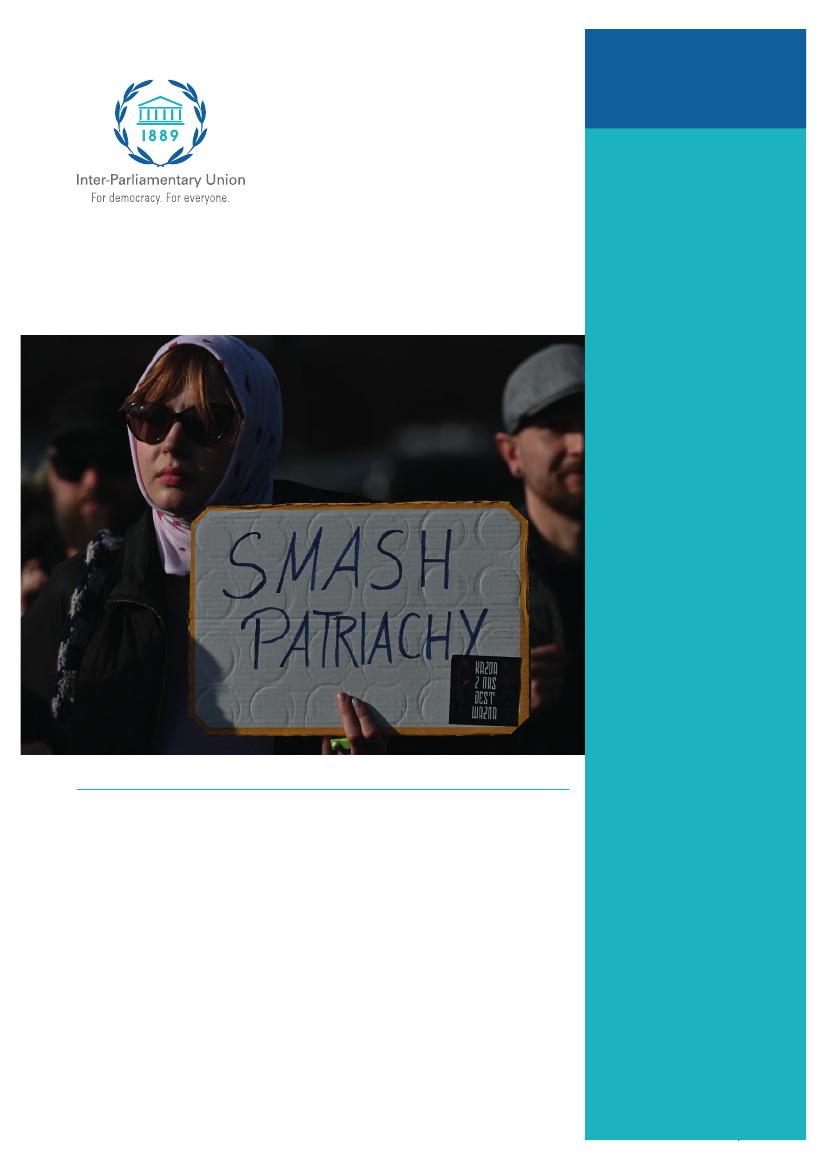
HIGHLIGHTS
• The share of women
in national parliaments
increased by 0.4 percentage
points, from 26.5% on
1 January 2023 to 26.9% on
1 January 2024. This was a
similar rate of progress as
in 2022.
• In the 52 countries that held
parliamentary elections in
2023, women accounted for
27.6% of elected or appointed
MPs – a 1.4-percentage-point
improvement as compared
to the previous polls in these
same countries.
• Women took 27% of elected
or appointed seats in lower
or single chambers in
2023, and 31% of seats in
upper chambers.
• The Americas remained
the region with the highest
representation of women,
who accounted for 42.5%
of members elected to nine
chambers in the six countries
that held parliamentary
renewals in 2023. Overall, as
of 1 January 2024, women
accounted for 35.1% of
all parliamentarians in the
region, across all chambers
and countries.
• Eswatini recorded the
highest progress in
women’s representation
among countries that held
elections in 2023, with a
20-percentage-point increase
in its upper chamber. It was
followed by Benin and Sierra
Leone, with increases of
18.5 and 15.9 percentage
points respectively.
• Quotas continued to be
a significant factor in
women’s representation in
parliament in 2023. The 43
chambers that had some
form of quotas elected
28.8% women on average,
versus 23.2% in chambers
with no quotas. The share
of women elected was the
highest (33.5%) in chambers
that had both legislated and
voluntary quotas.
Women in parliament in 2023
The year in review
Gender issues were prominent in several elections held in 2023. A protester in Poland holds a sign with
the slogan “SMASH PATRIACHY” (sic). © Artur Widak/NurPhoto/NurPhoto via AFP
Introduction
In 2023, progress on women’s representation in parliament was slow and mixed. Globally,
the share of women MPs stood at 26.9% on 1 January 2024 – only 0.4 percentage points
higher than it was 12 months earlier. This represented a similar rate of progress as in 2022,
but slower than in the preceding years.
Parliamentary elections were held in 2023 for 66 chambers in 52 countries. In 32 of these
chambers, women’s representation increased. The share of women fell in 19 chambers,
and remained the same or changed by less than 1 percentage point in 15 others. In
the countries that held parliamentary renewals in 2023, women accounted for 27.6%
of elected MPs across all chambers – a 1.4-percentage-point increase as compared to
the previous polls in these same countries. Cuba elected a female-majority parliament
while the United Arab Emirates had a parliament with parity for the second consecutive
time. In 19 chambers, women accounted for between one third and half of elected or
1